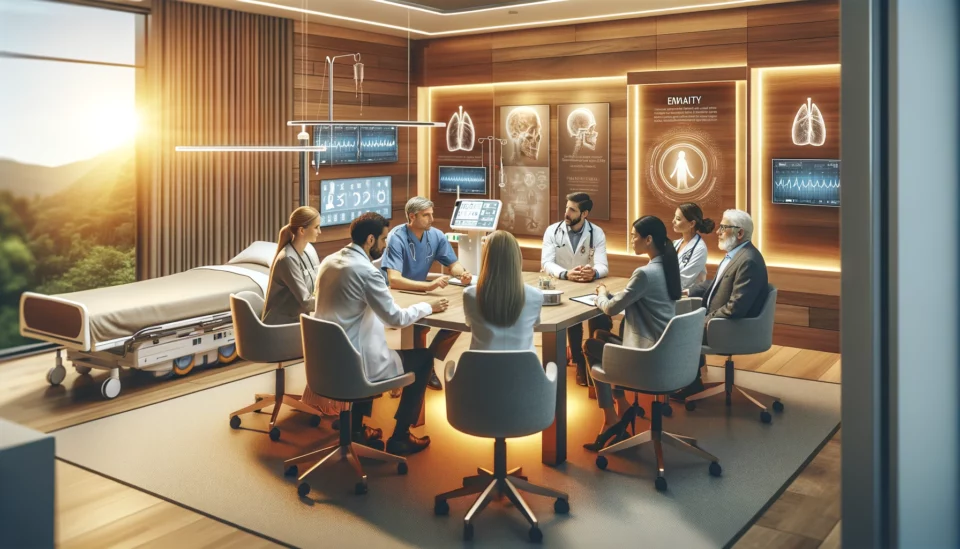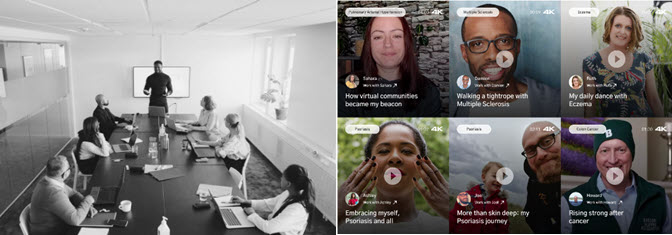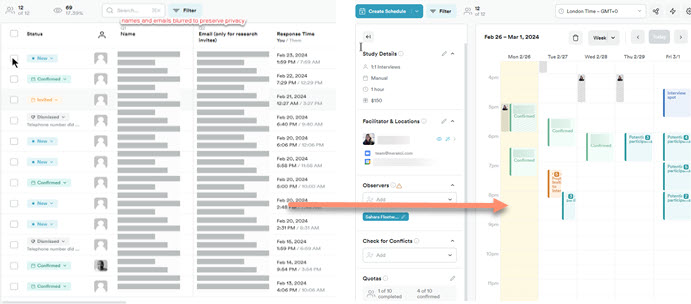

How User Research Shapes Health Innovation
Imagine you're a master chef. You've spent months crafting the perfect dish, a combination of exotic flavors that will revolutionize the culinary world. You're about to present it to a room full of eager foodies. But wait, you skipped the taste tests, and now, as the first bites are taken, you realize the dish isn't resonating. Panic sets in. Your masterpiece isn't a hit because you didn't understand your audience's palate.
This common scenario - perfecting the product without truly understanding the user - is exactly what we see happening in healthcare. Companies are often so focused on the endgame that they forget who they're playing for. The rush to reach significant milestones like regulatory approval or market launch can overshadow the key process of user research.
Teams become so consumed by these critical goals that they overlook the profound importance of involving patients and clinicians early and continuously throughout product development. Instead of integrating user research as a core element from conception through post-launch, it's often relegated to the final stages. This is particularly concerning because by the time the product is nearly ready to hit the market, opportunities for meaningful and cost-effective iterations are vastly reduced.
The result: solutions that may be clinically sound but don't fully meet the nuanced needs of the end-users they aim to serve.
A new perspective is essential—one that places continuous user research at the heart of creating healthcare solutions. This ensures those who the products are meant to help have a voice in the process every step of the way. In this article, we'll show how user research is not just about ticking boxes, but about connecting deeply with patient needs and experiences.
User research steers products via formative insights early on and summative validation later.
Integrating both formative, exploratory and summative, evaluative research allows products to evolve aligned with user perspectives throughout the development journey. Prioritizing these human-centered learnings helps ensure solutions resonate powerfully with the lives they aim to improve.
Let’s differentiate user research from two common tactics—market research and advisory boards.
Market research analyzes demographics, competitors, trends—crucial for positioning.
Advisory boards offer valuable but limited perspectives. Unless well provisioned, they likely represent the industry more than your users.
User research gets personal with real users. It uncovers deep insights into their everyday reality and what they truly need. This nitty-gritty understanding is impossible to glean from surface-level research or semi-removed advisors. You need boots-on-the-ground user research to create products that fit seamlessly into your customers’ lives. No amount of indirect data can replace or replicate the insight derived from engaging directly with users and prospective users themselves.

Incorporating user research into product development is essential for achieving key performance indicators like adoption and adherence. But how exactly does it pay off? Here are a couple examples:
Products designed collaboratively with end users are more intuitive, more convenient, and ultimately more impactful. The solution that emerges is not just built for users but built with them.
If you're sold on the value of user research, you might think of hiring a consultancy. But let me propose an alternative approach that harnesses the collective power of users.
At Merakoi, we run mini-communities -- small pools of patients that provide ongoing insights and feedback. Unlike sporadic focus groups, mini-communities persist over months or years as integral partners in product development. And, unlike standing advisory boards, turnover is encouraging to bring fresh voices.
Mini-communities may consist of several different cohorts of users, such as:
This diversity of perspectives ensures feedback represents the full spectrum of stakeholders.

Let's see how this worked for one promising digital health startup. The startup had secured regulatory approval in German (DiGa) and early commercial success with their digital solution for heart failure management. However, they knew that to achieve their vision of empowering patients worldwide, they needed to expand beyond a high-touch personal monitoring model.
The startup turned to Merakoi for mini-communities to continually guide development of a self-management program. Here's how it went:
My final takeaway: the future of human-centered healthcare is bright when we embrace user research not as an obligation, but as an opportunity to meaningfully connect with and empower the people we seek to help.
About Merakoi
Merakoi partners with health and life sciences companies to build mini-communities that guide product development through continuous user insights. Our network of patients/advocates and proprietary community platform enable engaging, longitudinal co-creation between users and developers. The result is human-centered solutions that resonate powerfully in the real world.
Ready to create health solutions that resonate? Contact us for more information about mini-communities.

✕